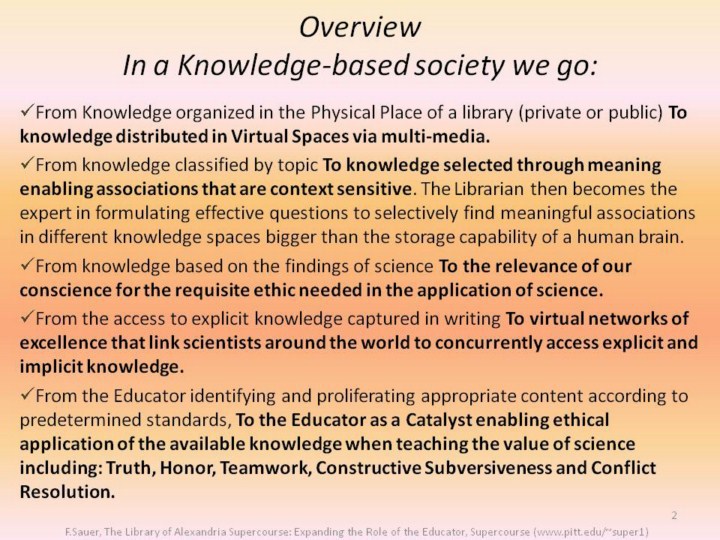| front |1 |2 |3 |4 |5 |6 |7 |8 |9 |10 |11 |12 |13 |14 |15 |16 |17 |review |
 |
The principal role of the teacher has been, up to this point in time, providing the student with the content knowledge required to contribute through his/her work to the community. We offer that, up to this point, this role has remained consistent regardless of the development of technology.
Until 200 years ago, the existing perceived world knowledge was essentially manageable by encyclopedists as Voltaire (1694-1778). The conceptual processing of knowledge was reserved for a very small and powerful elite of thinkers, i.e. clergy, philosophers or civil leaders, Today the abundance of knowledge requires that everyone processes only a fraction of the knowledge available, as it is not possible to assimilate all of it for its use when needed. This new requirement creates the need for people to connect and work cooperatively in co-creative relationships. We also claim that as connectedness and understanding increase they create a greater space for invention which is necessary for innovation (commercialization of inventions). This has the potential to level the playing field for developing nations as associations can be digitally develop cross national and political boundaries. And it holds a promise to move the relationship of Educator and Student from the level of how to apply knowledge to the level of how to assess the value of the current knowledge and how to create new knowledge. The educator becomes then a catalyst with an ethical responsibility to balance individual development with community development |